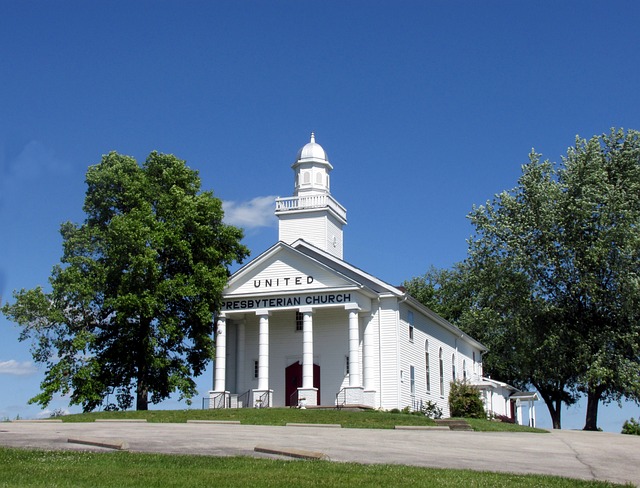Presbyterianism is a branch of Protestant Christianity that originated in Scotland during the 16th century. It is characterized by its adherence to the teachings of John Calvin and its emphasis on the sovereignty of God, the authority of Scripture, and the importance of the church community. While some Presbyterians may identify as evangelical, not all Presbyterians consider themselves to be evangelical. The term “evangelical” is often used to describe a specific theological and cultural movement within Protestantism, which places a strong emphasis on personal conversion, evangelism, and the authority of the Bible. Therefore, whether or not a Presbyterian identifies as evangelical can vary depending on their individual beliefs and affiliations.
Table of Contents
The Historical Relationship Between Presbyterianism and Evangelicalism
Presbyterianism and evangelicalism are two terms that often come up in discussions about Christianity. While they may seem distinct, there is actually a historical relationship between the two. In this article, we will explore the connection between Presbyterianism and evangelicalism and answer the question: Is a Presbyterian an evangelical?
To understand the relationship between Presbyterianism and evangelicalism, we need to delve into their historical roots. Presbyterianism emerged during the Protestant Reformation in the 16th century, with its origins in Scotland. It was heavily influenced by the teachings of John Calvin, who emphasized the sovereignty of God and the authority of Scripture. Presbyterian churches are characterized by their governance structure, which is based on a system of elders and a representative assembly called a presbytery.
On the other hand, evangelicalism is a broader movement within Christianity that emphasizes the importance of personal conversion and spreading the gospel. It emerged during the 18th century as a response to the perceived spiritual decline in Europe. Evangelicals place a strong emphasis on the authority of the Bible and the need for a personal relationship with Jesus Christ.
While Presbyterianism and evangelicalism have distinct origins, they have intersected throughout history. In fact, many Presbyterians consider themselves to be evangelical. This is because the core beliefs of evangelicalism, such as the authority of Scripture and the need for personal conversion, align with Presbyterian theology. Presbyterians believe in the importance of spreading the gospel and sharing their faith with others, which are key tenets of evangelicalism.
Furthermore, Presbyterianism has been influenced by various evangelical revivals throughout history. The First and Second Great Awakenings in the United States, for example, had a significant impact on Presbyterian churches. These revivals emphasized the need for personal conversion and ignited a fervor for evangelism. Many Presbyterians were actively involved in these revivals and embraced the evangelical spirit.
However, it is important to note that not all Presbyterians identify as evangelical. There are different theological perspectives within Presbyterianism, and some may lean more towards a liberal or conservative interpretation of the faith. While evangelicalism is a broad movement, it is often associated with conservative theology and a more literal interpretation of the Bible. Therefore, some Presbyterians may not fully align with the evangelical label.
In conclusion, the historical relationship between Presbyterianism and evangelicalism is complex. While Presbyterianism has its own distinct origins and theological framework, it has intersected with evangelicalism throughout history. Many Presbyterians consider themselves to be evangelical, as their core beliefs align with the key tenets of evangelicalism. However, not all Presbyterians identify as evangelical, as there are different theological perspectives within the Presbyterian tradition. Ultimately, whether a Presbyterian is considered evangelical depends on their individual beliefs and how they interpret and practice their faith.
Key Beliefs and Practices of Presbyterian Evangelicals

Is A Presbyterian an Evangelical?
When it comes to religious denominations, there are often misconceptions and misunderstandings about what they believe and practice. One such denomination that is often subject to confusion is Presbyterianism. Many people wonder if Presbyterians can be considered evangelicals. To answer this question, we need to delve into the key beliefs and practices of Presbyterian evangelicals.
Presbyterianism is a branch of Protestant Christianity that traces its roots back to the Reformation in the 16th century. It is characterized by its adherence to the principles of governance by elders, or presbyters, and its emphasis on the sovereignty of God. Evangelicalism, on the other hand, is a movement within Protestant Christianity that emphasizes the importance of personal conversion and the authority of the Bible.
At first glance, it may seem that Presbyterianism and evangelicalism are at odds with each other. After all, Presbyterians are known for their emphasis on the sovereignty of God and their commitment to the Reformed tradition, while evangelicals are often associated with a more personal and emotional approach to faith. However, it is important to note that not all Presbyterians are the same, and there is a subset of Presbyterians who identify as evangelicals.
Presbyterian evangelicals share many of the key beliefs and practices of other evangelicals. They believe in the authority of the Bible as the inspired word of God and the need for personal conversion through faith in Jesus Christ. They also emphasize the importance of sharing the gospel and making disciples. In this sense, Presbyterian evangelicals align with the core tenets of evangelicalism.
However, there are some distinctives within Presbyterianism that set them apart from other evangelicals. One of these distinctives is their commitment to the Reformed tradition. Presbyterian evangelicals hold to the teachings of John Calvin and other Reformed theologians, which emphasize the sovereignty of God in salvation and the importance of the church as a covenant community. This Reformed theology shapes their understanding of God, humanity, and the world.
Another distinctive of Presbyterian evangelicals is their commitment to the Presbyterian form of church government. They believe that the church should be governed by a body of elders, who are elected by the congregation and responsible for the spiritual oversight of the church. This emphasis on the role of elders sets them apart from other evangelicals who may have a more congregational or independent form of church government.
Despite these distinctives, Presbyterian evangelicals still consider themselves part of the broader evangelical movement. They share a common commitment to the gospel and the authority of the Bible with other evangelicals, even if they have some theological and ecclesiastical differences. Presbyterian evangelicals often participate in interdenominational events and organizations alongside other evangelicals, demonstrating their desire for unity and cooperation.
In conclusion, while not all Presbyterians can be considered evangelicals, there is a subset of Presbyterians who identify as such. Presbyterian evangelicals share many of the key beliefs and practices of other evangelicals, such as the authority of the Bible and the need for personal conversion. However, they also have distinctives that set them apart, such as their commitment to the Reformed tradition and the Presbyterian form of church government. Despite these differences, Presbyterian evangelicals still consider themselves part of the broader evangelical movement and seek to work together with other evangelicals for the sake of the gospel.
Exploring the Differences and Similarities Between Presbyterianism and Evangelicalism
Is A Presbyterian an Evangelical?
When it comes to religious denominations, it’s easy to get confused with all the different labels and beliefs. One question that often arises is whether a Presbyterian is considered an evangelical. To answer this question, we need to explore the differences and similarities between Presbyterianism and Evangelicalism.
Presbyterianism is a branch of Protestant Christianity that traces its roots back to the Reformation. It is named after its form of church government, which is based on the governance by elders or presbyters. Presbyterians believe in the sovereignty of God, the authority of Scripture, and the importance of faith in Jesus Christ for salvation. They emphasize the importance of education and have a strong tradition of theological scholarship.
On the other hand, Evangelicalism is a movement within Protestant Christianity that emphasizes the importance of personal conversion and a personal relationship with Jesus Christ. Evangelicals believe in the authority of Scripture, the need for salvation through faith in Jesus Christ, and the importance of sharing the Gospel with others. They place a strong emphasis on evangelism and missions.
While there are some similarities between Presbyterianism and Evangelicalism, there are also some key differences. One of the main differences lies in their approach to theology. Presbyterians tend to have a more formal and structured approach to theology, with a strong emphasis on the study of Scripture and the teachings of the church. Evangelicals, on the other hand, tend to have a more experiential and personal approach to theology, focusing on their personal relationship with Jesus Christ and the leading of the Holy Spirit.
Another difference lies in their worship styles. Presbyterian worship services are often more traditional and formal, with a liturgical structure and a focus on the sacraments. Evangelical worship services, on the other hand, are often more contemporary and informal, with a focus on praise and worship music and a more spontaneous style of worship.
Despite these differences, it is important to note that not all Presbyterians are the same, and not all Evangelicals are the same. There is a wide range of beliefs and practices within both denominations. Some Presbyterians may identify as evangelical, while others may not. Similarly, some Evangelicals may have Presbyterian beliefs and practices, while others may not.
Ultimately, whether a Presbyterian is considered an evangelical depends on how they define themselves and their beliefs. Some Presbyterians may embrace the label of evangelical because they emphasize personal conversion and a personal relationship with Jesus Christ. Others may not identify as evangelical because they place a stronger emphasis on the authority of the church and the importance of sacraments.
In conclusion, the question of whether a Presbyterian is considered an evangelical is not a simple one. While there are some similarities between Presbyterianism and Evangelicalism, there are also some key differences in their approach to theology and worship. Ultimately, it is up to each individual Presbyterian to define their own beliefs and whether they identify as evangelical or not. The most important thing is to have a personal relationship with Jesus Christ and to live out one’s faith in a way that honors God and brings glory to Him.
The Role of Presbyterian Evangelicals in Contemporary Christianity
Is A Presbyterian an Evangelical?
When it comes to understanding the various denominations within Christianity, it can sometimes be confusing to differentiate between them. One question that often arises is whether a Presbyterian can be considered an evangelical. To answer this question, we need to delve into the role of Presbyterian evangelicals in contemporary Christianity.
Presbyterianism is a branch of Protestant Christianity that traces its roots back to the Reformation. It is characterized by its adherence to the teachings of John Calvin and its emphasis on the sovereignty of God. Evangelicalism, on the other hand, is a movement within Christianity that places a strong emphasis on the authority of the Bible and the need for personal conversion.
At first glance, it may seem that these two terms are incompatible. After all, Presbyterianism is often associated with a more traditional and liturgical worship style, while evangelicalism is often associated with a more contemporary and charismatic approach. However, it is important to note that there is a significant overlap between the two.
Many Presbyterians identify as evangelical and embrace the core beliefs of evangelicalism. They believe in the authority of the Bible, the need for personal conversion, and the importance of sharing the gospel with others. These Presbyterians see themselves as part of a broader evangelical movement that transcends denominational boundaries.
One of the key factors that contribute to the presence of evangelicalism within Presbyterianism is the influence of the Westminster Confession of Faith. This confession, which serves as the doctrinal standard for many Presbyterian churches, affirms many of the core beliefs of evangelicalism. It emphasizes the authority of Scripture, the necessity of faith in Christ for salvation, and the importance of evangelism.
In addition to the theological compatibility between Presbyterianism and evangelicalism, there is also a historical connection between the two. Many of the early leaders of the evangelical movement, such as Jonathan Edwards and George Whitefield, were Presbyterians. Their preaching and teaching had a profound impact on the development of evangelicalism in America and beyond.
Furthermore, Presbyterian churches have often been at the forefront of evangelical efforts, both domestically and internationally. They have established mission organizations, supported missionaries, and engaged in social justice initiatives. These actions reflect the evangelical commitment to spreading the gospel and making a positive impact on society.
However, it is important to note that not all Presbyterians identify as evangelical. There are some who hold more liberal theological views and do not embrace the core beliefs of evangelicalism. These individuals may still consider themselves Presbyterian, but they may not align with the evangelical movement.
In conclusion, while not all Presbyterians identify as evangelical, there is a significant presence of evangelicalism within Presbyterianism. Many Presbyterians embrace the core beliefs of evangelicalism and see themselves as part of a broader evangelical movement. The compatibility between Presbyterianism and evangelicalism is rooted in their shared emphasis on the authority of the Bible, the need for personal conversion, and the importance of sharing the gospel. So, the answer to the question “Is a Presbyterian an evangelical?” is not a simple yes or no, but rather a recognition of the diversity within the Presbyterian tradition and the presence of evangelicalism within it.
Conclusion
No, a Presbyterian is not necessarily an evangelical.


